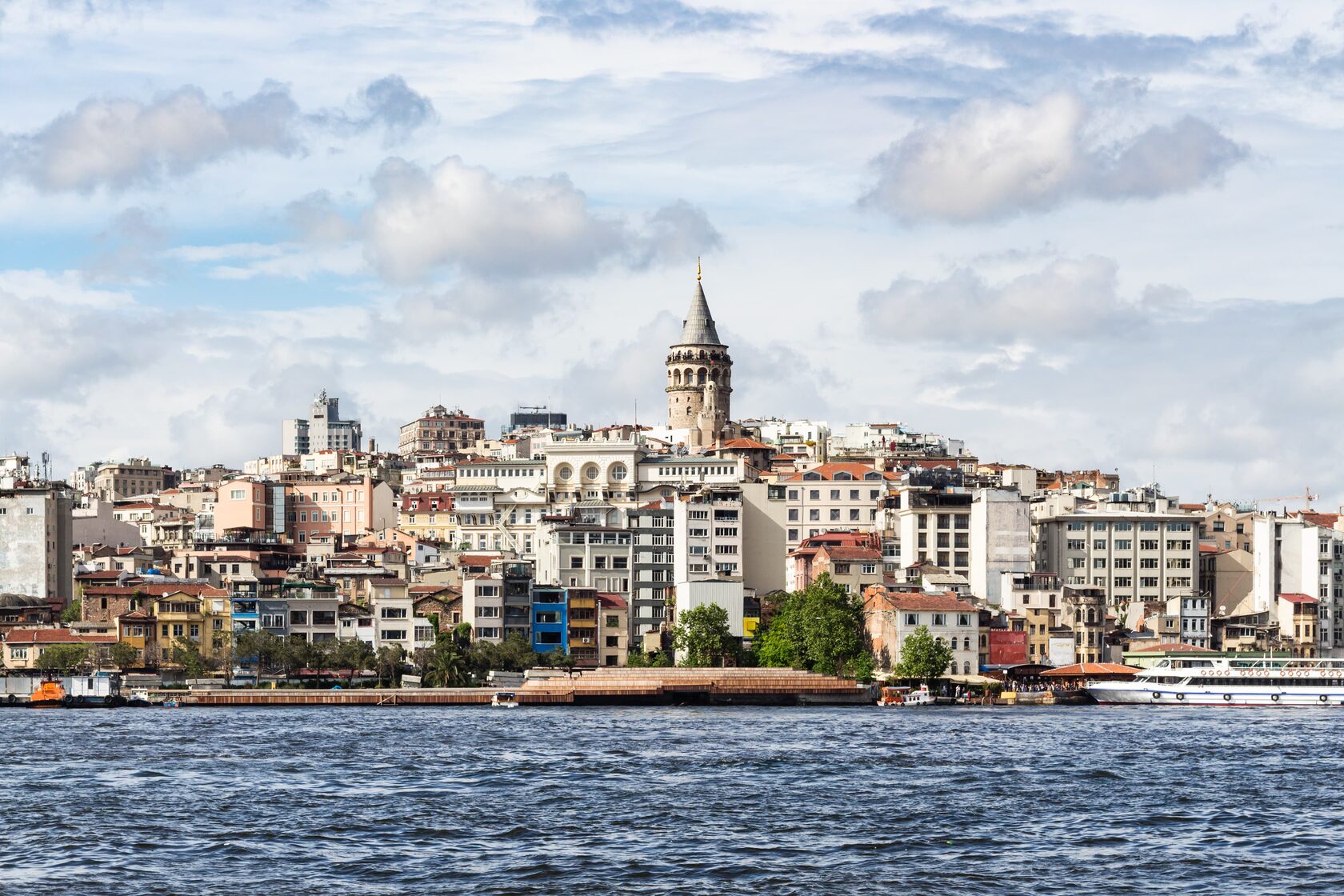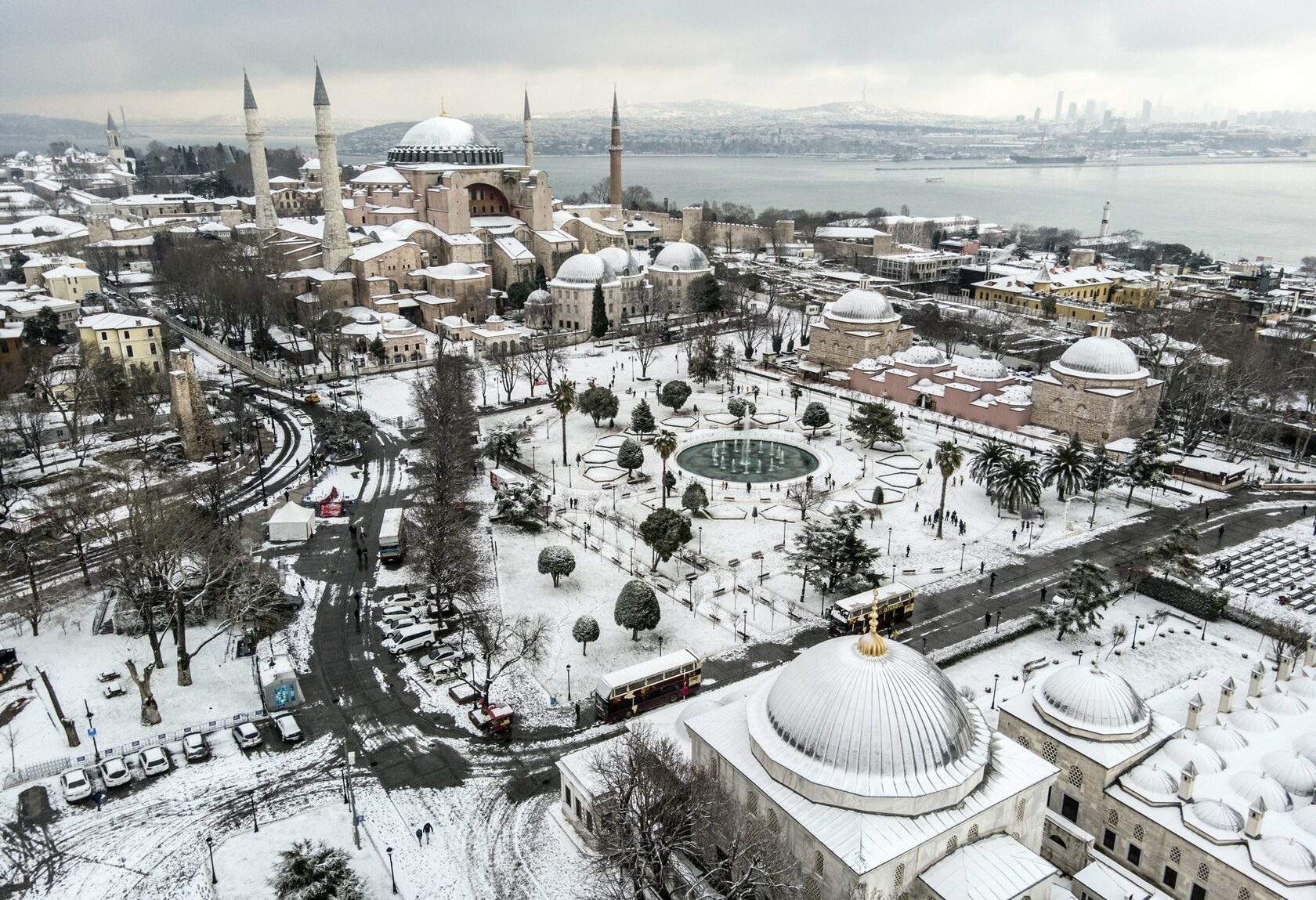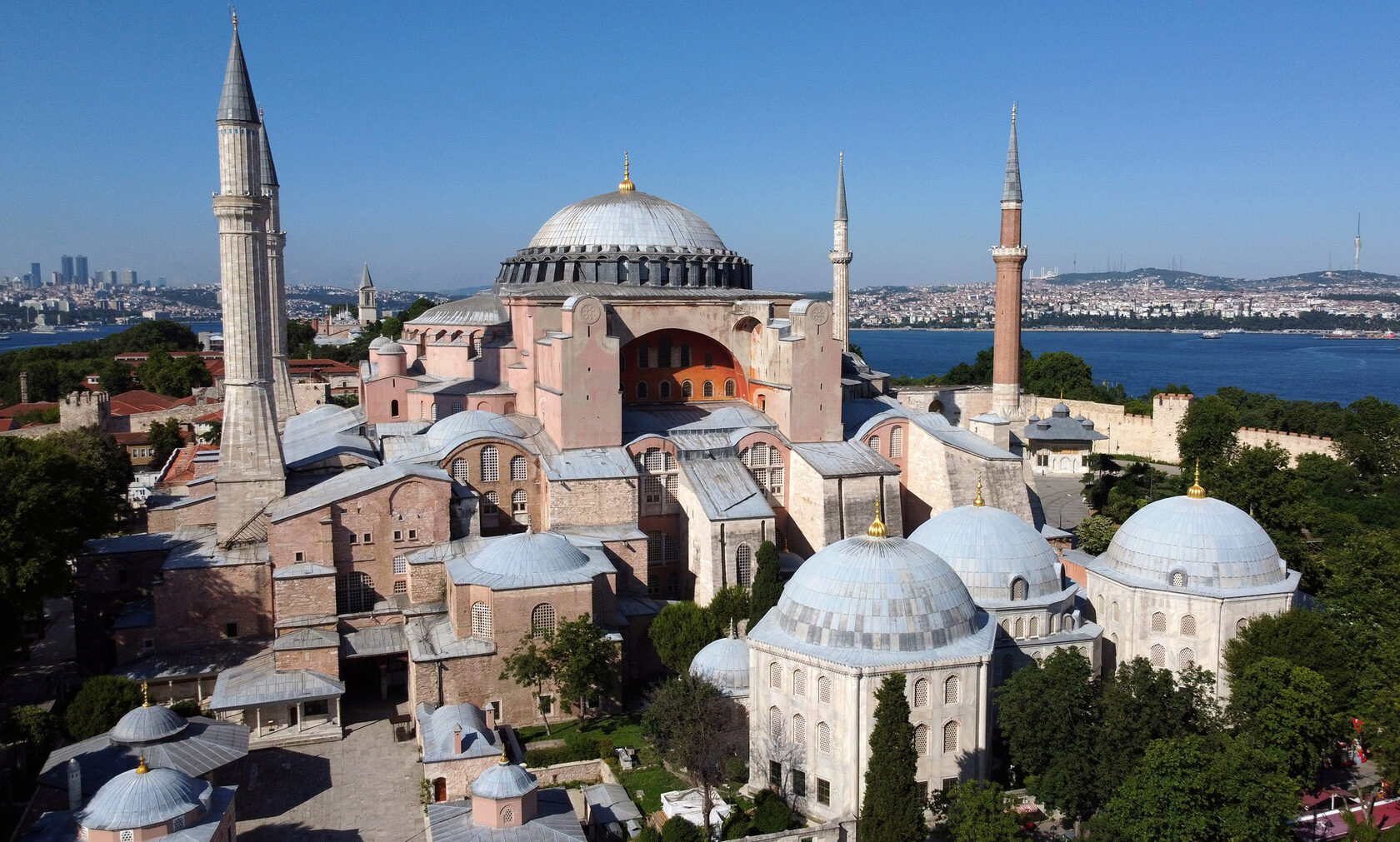Turkey, a country that spans both Europe and Asia, is rapidly becoming a popular destination for expats and foreigners. With its rich cultural heritage, stunning landscapes, and warm hospitality, it's no wonder that many are choosing to make Turkey their home. However, adjusting to life in a new country can be a daunting task, especially when it comes to navigating the intricacies of visas, immigration, taxes, and quality of life. In this guide, we'll provide a comprehensive overview of what it's like to live in Turkey as an expat, covering all the essential information you need to know before making the move.
What is the cost of living in Turkey?

As an AI language model, I do not have personal experience, but I can provide you with some insights into the cost of living in Turkey based on factual data and analysis. Turkey is a middle-income country with a diversified economy, and its cost of living varies depending on the region, city, and the individual's lifestyle. However, compared to other European countries, Turkey has a relatively low cost of living, making it an attractive destination for ex-pats and digital nomads.
Let's break down some of the essential aspects of the cost of living in Turkey:
Housing: The cost of housing in Turkey depends on the city you live in and the type of accommodation. Istanbul is the most expensive city in Turkey, with average rent prices varying from TRY 5,500 to TRY 8,000 per month for a one-bedroom apartment. On the other hand, the rent for the same property in other cities like Ankara and Izmir ranges between TRY 3,500 and TRY 5,500.
Transportation: Turkey has an extensive transportation network that includes buses, trains, metro, and taxis. The cost of transportation varies depending on the city and the mode of transportation. For instance, a one-way ticket on Istanbul's metro bus costs TRY 14.69, while a 1 km taxi ride costs around TRY 8.5. When you enter the taxi, the driver will activate the meter. The display should read 12,65 TL — the current flat rate. The minimum fare is 40 TL.
One ticket for one trip will cost 20 TL (€0.94 which is $1.03) Two trips of 30 TL, three trips for 50 TL, and 5 trips equal 60 TL. Then, 10 journeys between 110 and 120 TL.
To be able to save money ( for instance, if you plan to take public transport frequently) it is recommended to get an Istanbul transportation card (IstanbulKart). It lets you spend less for each trip and when you must transfer money and then make another trip following the transfer is between 30 and 40 percent cheaper. If you don't have a credit card, you are charged the entire price for every excursion.
The cost of a credit card with no amount of balance will be 50TL (€2.35 which is $2.57) which means that you'll have to pay for it to use it. It gives discounts on every type of transportation, including ferry services and Marmaray but not Dolmus ( shared Taxis). When you need to transfer, the first that is made within 30 minutes will be 30% less expensive while the second is 50% less expensive as well as the third by 45 percent.
Food: Turkish cuisine is known for its diversity and deliciousness, and the cost of food in Turkey is affordable. Food prices can also vary depending on the type of food and where you shop, but generally speaking, grocery prices are quite reasonable. A typical meal at an inexpensive restaurant can cost as little as 80 TL, while a mid-range meal for two people at a sit-down restaurant may cost around 200-300 TL.
Let's break down some of the essential aspects of the cost of living in Turkey:
Housing: The cost of housing in Turkey depends on the city you live in and the type of accommodation. Istanbul is the most expensive city in Turkey, with average rent prices varying from TRY 5,500 to TRY 8,000 per month for a one-bedroom apartment. On the other hand, the rent for the same property in other cities like Ankara and Izmir ranges between TRY 3,500 and TRY 5,500.
Transportation: Turkey has an extensive transportation network that includes buses, trains, metro, and taxis. The cost of transportation varies depending on the city and the mode of transportation. For instance, a one-way ticket on Istanbul's metro bus costs TRY 14.69, while a 1 km taxi ride costs around TRY 8.5. When you enter the taxi, the driver will activate the meter. The display should read 12,65 TL — the current flat rate. The minimum fare is 40 TL.
One ticket for one trip will cost 20 TL (€0.94 which is $1.03) Two trips of 30 TL, three trips for 50 TL, and 5 trips equal 60 TL. Then, 10 journeys between 110 and 120 TL.
To be able to save money ( for instance, if you plan to take public transport frequently) it is recommended to get an Istanbul transportation card (IstanbulKart). It lets you spend less for each trip and when you must transfer money and then make another trip following the transfer is between 30 and 40 percent cheaper. If you don't have a credit card, you are charged the entire price for every excursion.
The cost of a credit card with no amount of balance will be 50TL (€2.35 which is $2.57) which means that you'll have to pay for it to use it. It gives discounts on every type of transportation, including ferry services and Marmaray but not Dolmus ( shared Taxis). When you need to transfer, the first that is made within 30 minutes will be 30% less expensive while the second is 50% less expensive as well as the third by 45 percent.
Food: Turkish cuisine is known for its diversity and deliciousness, and the cost of food in Turkey is affordable. Food prices can also vary depending on the type of food and where you shop, but generally speaking, grocery prices are quite reasonable. A typical meal at an inexpensive restaurant can cost as little as 80 TL, while a mid-range meal for two people at a sit-down restaurant may cost around 200-300 TL.
What is the best city to live in in Turkey?

Turkey is a beautiful country that boasts a rich history, diverse culture, and stunning landscapes. Choosing the best city to live in in Turkey depends on a variety of factors, such as personal preferences, lifestyle, and budget. However, there are a few cities that stand out as some of the best places to live in Turkey.
Istanbul is undoubtedly one of the most vibrant and cosmopolitan cities in Turkey. It offers a blend of traditional and modern living, where you can find historic landmarks, trendy cafes, and upscale shopping centers. Istanbul has a bustling atmosphere, with plenty of entertainment options, cultural events, and a vibrant nightlife scene. The city is also a melting pot of different cultures, making it an ideal place for ex-pats who seek diversity.
Another attractive city to live in Turkey is Ankara, the capital, where you can find a balance of urban and suburban lifestyles. Ankara is a modern, well-planned city with excellent infrastructure, including public transportation, shopping centers, and healthcare facilities. The city boasts several parks and green spaces, making it a perfect place for nature lovers. Ankara is also home to many international organizations, making it a hub for expats.
If you're looking for a peaceful and laid-back lifestyle, Antalya might be the right place for you. Antalya is a coastal city located on the Mediterranean Sea, offering breathtaking views of the sea and mountains. The city has a warm climate, making it a popular destination for tourists and retirees.
Istanbul is undoubtedly one of the most vibrant and cosmopolitan cities in Turkey. It offers a blend of traditional and modern living, where you can find historic landmarks, trendy cafes, and upscale shopping centers. Istanbul has a bustling atmosphere, with plenty of entertainment options, cultural events, and a vibrant nightlife scene. The city is also a melting pot of different cultures, making it an ideal place for ex-pats who seek diversity.
Another attractive city to live in Turkey is Ankara, the capital, where you can find a balance of urban and suburban lifestyles. Ankara is a modern, well-planned city with excellent infrastructure, including public transportation, shopping centers, and healthcare facilities. The city boasts several parks and green spaces, making it a perfect place for nature lovers. Ankara is also home to many international organizations, making it a hub for expats.
If you're looking for a peaceful and laid-back lifestyle, Antalya might be the right place for you. Antalya is a coastal city located on the Mediterranean Sea, offering breathtaking views of the sea and mountains. The city has a warm climate, making it a popular destination for tourists and retirees.
What type of housing is available in Turkey?

Turkey offers a wide range of housing options to meet the diverse needs and preferences of its residents. Whether you are looking for a modern apartment or a traditional villa, there is something for everyone in Turkey's housing market.
One of the most popular types of housing in Turkey is apartments. These can range from small, compact studios to expansive penthouses with panoramic city or sea views. Apartments are often located in multi-story buildings and come with amenities like elevators, indoor parking, and security systems. They are a popular choice for those looking for convenient and low-maintenance living.
Villas are another popular choice for housing in Turkey. These are typically standalone houses that offer greater privacy, outdoor space, and a more traditional feel. Villas come in many different styles and sizes, from small cottages to sprawling mansions. They are often located in suburban or rural areas and may come with amenities like private pools, gardens, and garages.
For those looking for a more affordable option, Turkey also offers a range of flats and shared accommodations. These are often small apartments or rooms within larger homes that are rented out to students or young professionals. They offer a more communal living experience and are often located closer to universities or city centers.
Overall, Turkey's housing market is diverse and adaptable, catering to a wide range of budgets and lifestyles. Whether you are looking for a modern apartment or a traditional villa, you are sure to find the perfect home in Turkey.
One of the most popular types of housing in Turkey is apartments. These can range from small, compact studios to expansive penthouses with panoramic city or sea views. Apartments are often located in multi-story buildings and come with amenities like elevators, indoor parking, and security systems. They are a popular choice for those looking for convenient and low-maintenance living.
Villas are another popular choice for housing in Turkey. These are typically standalone houses that offer greater privacy, outdoor space, and a more traditional feel. Villas come in many different styles and sizes, from small cottages to sprawling mansions. They are often located in suburban or rural areas and may come with amenities like private pools, gardens, and garages.
For those looking for a more affordable option, Turkey also offers a range of flats and shared accommodations. These are often small apartments or rooms within larger homes that are rented out to students or young professionals. They offer a more communal living experience and are often located closer to universities or city centers.
Overall, Turkey's housing market is diverse and adaptable, catering to a wide range of budgets and lifestyles. Whether you are looking for a modern apartment or a traditional villa, you are sure to find the perfect home in Turkey.
What is the job market like in Turkey?

The job market in Turkey has seen significant changes in recent years, with the country undergoing a period of economic growth and development. Despite this, the market can be challenging for both local and foreign job seekers, with high levels of competition across many sectors.
One of the key factors affecting the job market in Turkey is the country's increasing population, which is expected to reach almost 100 million by 2050. This has led to growth in certain industries such as construction, which has seen a surge in demand for both skilled and unskilled workers.
Additionally, the service sector has been growing rapidly in recent years, driven by an increase in international trade and investment. Many foreign companies have set up operations in Turkey, creating a wealth of job opportunities for both Turkish citizens and expatriates.
However, despite these positive developments, the Turkish job market still faces significant challenges, particularly in terms of youth unemployment. According to recent reports, the youth unemployment rate in Turkey is around 25%, which is higher than the overall unemployment rate.
Moreover, many jobs in Turkey are low-paying and lack job security, particularly in the informal sector. This can be challenging for workers who need stability and good working conditions and can also have a negative impact on the country's overall economic growth and stability.
Overall, while the job market in Turkey presents many opportunities for job seekers, it is also a complex and challenging environment that requires careful research and preparation.
One of the key factors affecting the job market in Turkey is the country's increasing population, which is expected to reach almost 100 million by 2050. This has led to growth in certain industries such as construction, which has seen a surge in demand for both skilled and unskilled workers.
Additionally, the service sector has been growing rapidly in recent years, driven by an increase in international trade and investment. Many foreign companies have set up operations in Turkey, creating a wealth of job opportunities for both Turkish citizens and expatriates.
However, despite these positive developments, the Turkish job market still faces significant challenges, particularly in terms of youth unemployment. According to recent reports, the youth unemployment rate in Turkey is around 25%, which is higher than the overall unemployment rate.
Moreover, many jobs in Turkey are low-paying and lack job security, particularly in the informal sector. This can be challenging for workers who need stability and good working conditions and can also have a negative impact on the country's overall economic growth and stability.
Overall, while the job market in Turkey presents many opportunities for job seekers, it is also a complex and challenging environment that requires careful research and preparation.
What healthcare options are available in Turkey?

Turkey has a robust healthcare system that offers a variety of options for both residents and visitors. The country's healthcare system is a mix of public and private institutions, and the government has invested heavily in modernizing and expanding its healthcare infrastructure in recent years.
Public healthcare in Turkey is provided by the Social Security Institution (SGK), which covers all citizens and legal residents. The SGK has a network of hospitals and clinics throughout the country and offers a wide range of services, including primary care, specialist care, and emergency care. The quality of care in public facilities can vary depending on the location, but overall, the system is efficient and provides adequate care to patients.
Private healthcare in Turkey is also widely available, and the country is home to some of the world's most advanced medical facilities. Private hospitals and clinics offer a range of specialized services, such as cosmetic surgery, fertility treatments, and cardiovascular procedures. Private healthcare in Turkey is generally more expensive than public healthcare, but it is often quicker and offers more personalized care.
One of the unique healthcare options in Turkey is medical tourism, which has become increasingly popular in recent years. The country has positioned itself as a top destination for medical tourists, offering high-quality care at a fraction of the cost of similar procedures in other countries. Many private hospitals have dedicated international patient departments, and they offer services such as airport transfers, translation services, and accommodation arrangements.
In conclusion, Turkey offers a range of healthcare options, from public healthcare to private hospitals and clinics.
Public healthcare in Turkey is provided by the Social Security Institution (SGK), which covers all citizens and legal residents. The SGK has a network of hospitals and clinics throughout the country and offers a wide range of services, including primary care, specialist care, and emergency care. The quality of care in public facilities can vary depending on the location, but overall, the system is efficient and provides adequate care to patients.
Private healthcare in Turkey is also widely available, and the country is home to some of the world's most advanced medical facilities. Private hospitals and clinics offer a range of specialized services, such as cosmetic surgery, fertility treatments, and cardiovascular procedures. Private healthcare in Turkey is generally more expensive than public healthcare, but it is often quicker and offers more personalized care.
One of the unique healthcare options in Turkey is medical tourism, which has become increasingly popular in recent years. The country has positioned itself as a top destination for medical tourists, offering high-quality care at a fraction of the cost of similar procedures in other countries. Many private hospitals have dedicated international patient departments, and they offer services such as airport transfers, translation services, and accommodation arrangements.
In conclusion, Turkey offers a range of healthcare options, from public healthcare to private hospitals and clinics.
What are the transportation options in Turkey?

Turkey offers a wide range of transportation options that cater to different needs and budgets. From public transport to private transfers, here are some of the most popular transportation options in Turkey:
1. Public Transport: Turkey has a well-developed public transportation system consisting of buses, metro, and trams. Istanbul, Ankara, and Izmir have extensive metro and tram networks that connect different parts of the city. Buses are widely available in all major cities and towns, offering an affordable and convenient way to travel.
2. Taxis: Taxis are readily available in Turkey, and they are a great option for short distances or when public transport is not available. Taxis are metered, and the fares are affordable, making them a popular choice for many tourists.
3. Car Rental: Renting a car is a great option for those who want to explore Turkey at their own pace. There are several car rental companies in Turkey, and the rates are relatively affordable. However, it is important to note that driving in Turkey can be challenging due to the traffic and road conditions.
4. Private Transfers: Private transfers are a convenient and hassle-free way to travel in Turkey. You can book a private transfer online or through your hotel, and a driver will pick you up from your location and take you to your destination. Private transfers are particularly popular for airport transfers and day tours.
5. Domestic Flights: Turkey has several domestic airlines that offer affordable and frequent flights to different parts of the country.
1. Public Transport: Turkey has a well-developed public transportation system consisting of buses, metro, and trams. Istanbul, Ankara, and Izmir have extensive metro and tram networks that connect different parts of the city. Buses are widely available in all major cities and towns, offering an affordable and convenient way to travel.
2. Taxis: Taxis are readily available in Turkey, and they are a great option for short distances or when public transport is not available. Taxis are metered, and the fares are affordable, making them a popular choice for many tourists.
3. Car Rental: Renting a car is a great option for those who want to explore Turkey at their own pace. There are several car rental companies in Turkey, and the rates are relatively affordable. However, it is important to note that driving in Turkey can be challenging due to the traffic and road conditions.
4. Private Transfers: Private transfers are a convenient and hassle-free way to travel in Turkey. You can book a private transfer online or through your hotel, and a driver will pick you up from your location and take you to your destination. Private transfers are particularly popular for airport transfers and day tours.
5. Domestic Flights: Turkey has several domestic airlines that offer affordable and frequent flights to different parts of the country.
What is the climate like in Turkey?

Turkey is a country with a varied climate due to its geographical location. The coastal areas of Turkey experience a Mediterranean climate, while the interior regions have a continental climate.
The Mediterranean climate is characterized by hot, dry summers with mild and wet winters. The coastal regions are warm throughout the year, with temperatures averaging around 30°C during the summer months. The rainfall is higher during the winter months, with occasional thunderstorms.
The continental climate of Turkey is characterized by hot and dry summers and cold winters, with snowfall in some areas. The temperatures can vary greatly between day and night, with summer temperatures reaching up to 40°C during the day and dropping to 10°C at night. The winter temperatures can range from -10°C to 10°C, depending on the region.
The eastern regions of Turkey, including the mountainous areas, experience a harsher climate, with long and cold winters and short summers. The rainfall is low in these areas, with occasional snowfall during the winter months.
Overall, Turkey experiences a diverse climate, with variations in temperature and rainfall depending on the region. It is advisable to check the weather forecast before traveling to Turkey to ensure that you have appropriate clothing and are prepared for the weather conditions.
The Mediterranean climate is characterized by hot, dry summers with mild and wet winters. The coastal regions are warm throughout the year, with temperatures averaging around 30°C during the summer months. The rainfall is higher during the winter months, with occasional thunderstorms.
The continental climate of Turkey is characterized by hot and dry summers and cold winters, with snowfall in some areas. The temperatures can vary greatly between day and night, with summer temperatures reaching up to 40°C during the day and dropping to 10°C at night. The winter temperatures can range from -10°C to 10°C, depending on the region.
The eastern regions of Turkey, including the mountainous areas, experience a harsher climate, with long and cold winters and short summers. The rainfall is low in these areas, with occasional snowfall during the winter months.
Overall, Turkey experiences a diverse climate, with variations in temperature and rainfall depending on the region. It is advisable to check the weather forecast before traveling to Turkey to ensure that you have appropriate clothing and are prepared for the weather conditions.
What cultural attractions are available in Turkey?

Turkey has a rich cultural heritage and offers a variety of attractions for visitors to explore. From ancient ruins to stunning mosques and museums, there is something for everyone.
One of the most iconic cultural attractions in Turkey is the Hagia Sophia. This stunning building was originally constructed as a church in the 6th century and later transformed into a mosque in the 15th century. Today it serves as a museum and is admired for its beautiful architecture and history.
Another must-see attraction is the Blue Mosque. Known as Sultan Ahmed Mosque, it features an impressive exterior and an intricate interior with thousands of blue tiles. Visitors can also witness the beautiful call to prayer that echoes through the mosque five times a day.
For those interested in ancient history, a visit to Ephesus is a must. This ancient city is home to some of the most well-preserved ancient ruins in the world, including the Temple of Artemis, one of the Seven Wonders of the Ancient World.
Other cultural attractions in Turkey include the Topkapi Palace, which was once the home of the Ottoman sultans, and the Grand Bazaar, one of the largest and oldest covered markets in the world.
In addition to these popular attractions, Turkey also offers a variety of museums celebrating art, history, and culture. Some of the most notable include the Istanbul Archaeology Museums, the Museum of Anatolian Civilizations, and the Chora Museum.
One of the most iconic cultural attractions in Turkey is the Hagia Sophia. This stunning building was originally constructed as a church in the 6th century and later transformed into a mosque in the 15th century. Today it serves as a museum and is admired for its beautiful architecture and history.
Another must-see attraction is the Blue Mosque. Known as Sultan Ahmed Mosque, it features an impressive exterior and an intricate interior with thousands of blue tiles. Visitors can also witness the beautiful call to prayer that echoes through the mosque five times a day.
For those interested in ancient history, a visit to Ephesus is a must. This ancient city is home to some of the most well-preserved ancient ruins in the world, including the Temple of Artemis, one of the Seven Wonders of the Ancient World.
Other cultural attractions in Turkey include the Topkapi Palace, which was once the home of the Ottoman sultans, and the Grand Bazaar, one of the largest and oldest covered markets in the world.
In addition to these popular attractions, Turkey also offers a variety of museums celebrating art, history, and culture. Some of the most notable include the Istanbul Archaeology Museums, the Museum of Anatolian Civilizations, and the Chora Museum.
What safety measures should I take when living in Turkey?
When living in Turkey, it is important to take certain safety measures to ensure your well-being. Here are some tips to help you stay safe:
1. Be aware of your surroundings: When out and about, always be aware of your surroundings. Keep an eye on the people and activities around you, and avoid areas that seem unsafe.
2. Avoid political gatherings: Turkey has a history of political unrest, and it is best to avoid political gatherings and demonstrations, as they can be unpredictable and potentially dangerous.
3. Be cautious when using public transportation: Public transportation in Turkey can be crowded and chaotic, making it a prime location for pickpockets and thieves. Keep your valuables close to you and be aware of your surroundings.
4. Stay in well-lit areas at night: At night, it is best to stay in well-lit areas, especially if you are unfamiliar with the area. Avoid walking alone at night and always let someone know where you are going.
5. Learn some basic Turkish: Knowing some basic Turkish can be helpful in communicating with locals and navigating the country. It also shows that you have made an effort to understand the local culture.
6. Follow local customs: Turkey is a conservative country, and it is important to respect local customs and traditions. Dress modestly when visiting mosques and other religious sites, and be mindful of your behavior in public.
7. Keep important documents and valuables secure: Keep important documents such as your passport and visa in a safe place.
Turkey is a beautiful country with a rich history and culture. However, as with any place, it is important to take safety measures to ensure your well-being. By being aware of your surroundings, avoiding political gatherings, being cautious when using public transportation, staying in well-lit areas at night, learning some basic Turkish, following local customs, and keeping important documents and valuables secure, you can have a safe and enjoyable experience living in Turkey. It is important to always prioritize your safety and be mindful of potential risks to ensure a high quality of life as an ex-pat or foreigner living in Turkey.
1. Be aware of your surroundings: When out and about, always be aware of your surroundings. Keep an eye on the people and activities around you, and avoid areas that seem unsafe.
2. Avoid political gatherings: Turkey has a history of political unrest, and it is best to avoid political gatherings and demonstrations, as they can be unpredictable and potentially dangerous.
3. Be cautious when using public transportation: Public transportation in Turkey can be crowded and chaotic, making it a prime location for pickpockets and thieves. Keep your valuables close to you and be aware of your surroundings.
4. Stay in well-lit areas at night: At night, it is best to stay in well-lit areas, especially if you are unfamiliar with the area. Avoid walking alone at night and always let someone know where you are going.
5. Learn some basic Turkish: Knowing some basic Turkish can be helpful in communicating with locals and navigating the country. It also shows that you have made an effort to understand the local culture.
6. Follow local customs: Turkey is a conservative country, and it is important to respect local customs and traditions. Dress modestly when visiting mosques and other religious sites, and be mindful of your behavior in public.
7. Keep important documents and valuables secure: Keep important documents such as your passport and visa in a safe place.
Turkey is a beautiful country with a rich history and culture. However, as with any place, it is important to take safety measures to ensure your well-being. By being aware of your surroundings, avoiding political gatherings, being cautious when using public transportation, staying in well-lit areas at night, learning some basic Turkish, following local customs, and keeping important documents and valuables secure, you can have a safe and enjoyable experience living in Turkey. It is important to always prioritize your safety and be mindful of potential risks to ensure a high quality of life as an ex-pat or foreigner living in Turkey.
What is the best way to learn Turkish?
Learning a new language can be a challenging but rewarding experience. If you're interested in learning Turkish, there are several options available to you. Here are some of the best ways to learn Turkish:
1. Enroll in a language course: Taking a language course is one of the most effective ways to learn Turkish. A structured course will provide you with a solid foundation of grammar, vocabulary, and pronunciation. Additionally, working with a teacher can help you stay motivated and accountable.
2. Immersion: Immersing yourself in the Turkish language and culture can be a powerful way to learn. If you have the opportunity to travel to Turkey, take advantage of it! Surround yourself with native speakers and try to use Turkish as much as possible.
3. Language exchange: Find a language exchange partner who is a native speaker of Turkish. This can be a great way to practice speaking and listening skills. You can also help your partner improve their English skills in exchange.
4. Self-study: There are numerous resources available for self-study, including textbooks, online courses, and language learning apps. While self-study requires more discipline and motivation, it can be a convenient and cost-effective option.
5. Practice, Practice, Practice: Whatever method you choose, the key to success is practice. Make a habit of practicing Turkish every day, even if it's just for a few minutes. Consistency is key to making progress.
There are several effective ways to learn Turkish, including enrolling in a language course, immersion, language exchange, self-study, and consistent practice. Whichever method you choose, it's important to stay motivated and committed to making progress. Additionally, knowing some basic Turkish and respecting local customs can be helpful in communicating with locals and navigating the country. By investing time and effort into learning Turkish, you can expand your horizons and deepen your understanding of Turkish culture and society.
1. Enroll in a language course: Taking a language course is one of the most effective ways to learn Turkish. A structured course will provide you with a solid foundation of grammar, vocabulary, and pronunciation. Additionally, working with a teacher can help you stay motivated and accountable.
2. Immersion: Immersing yourself in the Turkish language and culture can be a powerful way to learn. If you have the opportunity to travel to Turkey, take advantage of it! Surround yourself with native speakers and try to use Turkish as much as possible.
3. Language exchange: Find a language exchange partner who is a native speaker of Turkish. This can be a great way to practice speaking and listening skills. You can also help your partner improve their English skills in exchange.
4. Self-study: There are numerous resources available for self-study, including textbooks, online courses, and language learning apps. While self-study requires more discipline and motivation, it can be a convenient and cost-effective option.
5. Practice, Practice, Practice: Whatever method you choose, the key to success is practice. Make a habit of practicing Turkish every day, even if it's just for a few minutes. Consistency is key to making progress.
There are several effective ways to learn Turkish, including enrolling in a language course, immersion, language exchange, self-study, and consistent practice. Whichever method you choose, it's important to stay motivated and committed to making progress. Additionally, knowing some basic Turkish and respecting local customs can be helpful in communicating with locals and navigating the country. By investing time and effort into learning Turkish, you can expand your horizons and deepen your understanding of Turkish culture and society.
Advantages of living in Turkey
Living in Turkey as an ex-pat or foreigner can be a life-changing decision. Not only is Turkey a beautiful and culturally rich country, but it also offers numerous benefits to its immigrants. One of the most significant advantages is the ease of obtaining a visa and the low cost of living. Turkey also has a progressive education system that attracts students from around the world. Additionally, Turkey does not tax its foreign residents on their income earned outside of the country, making it a financially attractive option.
Quality of life is also a significant factor in choosing to live in Turkey. The country has a strong sense of community and hospitality, making it easy for newcomers to feel at home. Turkey also has an excellent healthcare system that is accessible and affordable for all its residents. The country also has a diverse and vibrant ex-pat community that can provide a support system for those adjusting to life in a new country.
Overall, living in Turkey can be a rewarding experience for those seeking adventure, culture, and a high quality of life. With its welcoming community, affordable cost of living, and numerous opportunities, Turkey may be the best decision you ever make. With a little effort in learning the local language and customs, you can easily integrate into the Turkish way of life and have a fulfilling life as an immigrant in this beautiful country.
Quality of life is also a significant factor in choosing to live in Turkey. The country has a strong sense of community and hospitality, making it easy for newcomers to feel at home. Turkey also has an excellent healthcare system that is accessible and affordable for all its residents. The country also has a diverse and vibrant ex-pat community that can provide a support system for those adjusting to life in a new country.
Overall, living in Turkey can be a rewarding experience for those seeking adventure, culture, and a high quality of life. With its welcoming community, affordable cost of living, and numerous opportunities, Turkey may be the best decision you ever make. With a little effort in learning the local language and customs, you can easily integrate into the Turkish way of life and have a fulfilling life as an immigrant in this beautiful country.
Conclusion
In conclusion, Turkey offers numerous benefits to its immigrants, making it an attractive option for expats and foreigners looking for a better quality of life. From its easy visa process and low cost of living to its progressive education system and excellent healthcare facilities, Turkey has a lot to offer. Additionally, with its welcoming community and diverse ex-pat population, newcomers can easily integrate into the Turkish way of life. So, if you're looking for adventure, culture, and a high quality of life, consider making Turkey your new home. With a little effort and an open mind, you can have a fulfilling life as an immigrant in this beautiful country.









